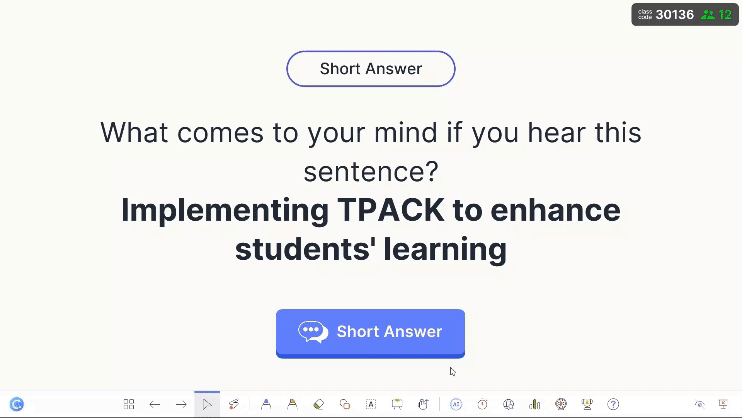70 Thought-Provoking Debate Topics for Students in Different Categories That Cover the Most Important Issues of Our Time
Debate topics serve as a gateway to critical thinking and informed discussion, providing students the opportunity to explore pressing issues in society. We want classrooms to be safe spaces, and having difficult conversations is essential. Engaging in challenging discussions does not disrupt this safety, but rather opens up perspectives that can foster a healthier environment.
When students’ thoughts are challenged and acknowledged, it contributes to a more robust and respectful dialogue, ultimately creating a classroom atmosphere where diverse opinions can coexist. But really, why do we need debates to happen in a classroom environment?
- Engaging in critical thinking is essential for academic success. By dissecting complex issues, students learn to analyze various perspectives and develop well-rounded arguments, equipping themselves with invaluable skills for both academic and real-world scenarios.
- Staying current with relevant topics ensures informed discussions. Many debate topics reflect recent trends and challenges in society, such as climate change and advancements in technology, making conversations impactful and pertinent.
- Fostering empathy and understanding through debate builds a more informed citizenry. Engaging with diverse topics encourages students to consider viewpoints different from their own, promoting a more empathetic perspective beyond the classroom.
- Enhancing communication skills is vital for effective debate. Articulating thoughts and responding to opposing viewpoints helps students hone their verbal and written communication abilities, which are crucial for success in any field.
Challenging Debate Topics for Tackling Crucial Issues
Debate Topics on Artificial Intelligence
1. Should AI be allowed to replace human teachers in classrooms?
With AI tools being introduced into classrooms, some argue they could eventually replace teachers. Is it better for AI to assist teachers rather than fully replacing them, or will the technology provide a superior alternative to traditional education?
2. Should companies be held liable for harm caused by AI systems?
As AI becomes more autonomous, the potential for mistakes or harmful outcomes increases. Should companies be legally responsible when their AI systems cause harm, or should the onus be on consumers to use AI responsibly?
3. Is the development of AI-enhanced military weapons ethical?
The idea of AI being used in warfare has sparked heated debate. While it may make military operations more efficient, does it create a future where machines decide who lives and dies?
4. Should AI-generated content be labeled to distinguish it from human-created content?
With AI tools now capable of producing art, music, and written work, should there be clear labeling to indicate when content was generated by an algorithm, so audiences can discern the difference?
5. Should AI-driven facial recognition technology be banned in public spaces?
Facial recognition technology is increasingly used in law enforcement and public settings, raising privacy concerns. Should governments regulate or ban this technology to protect citizens’ privacy?
6. Is AI a threat to human jobs, or a tool for job creation?
AI has the potential to automate many jobs, but it could also create new roles in tech and innovation. Should we fear AI’s impact on employment, or should it be seen as an opportunity for growth?
7. Should AI systems be granted legal rights or protections?
As AI systems become more advanced, some argue they could be entitled to legal rights, similar to corporations. Should we grant AI protections, or would this undermine human rights?
8. Should governments regulate AI to prevent bias in decision-making?
AI systems can carry biases based on their training data. Should there be strict regulations to ensure AI decision-making is fair, or will this stifle innovation?
9. Is it ethical to develop AI capable of human-like emotions?
Some developers are aiming to create AI that mimics human emotions. Is it ethical to simulate feelings in machines, and what are the potential consequences?
10. Should we pause the development of superintelligent AI?
Many tech leaders have raised concerns about the unchecked development of superintelligent AI. Should there be a global moratorium on its progress until we better understand its long-term impacts?
💡 Bonus Interactive Tip:
If you’re an educator who regularly uses PowerPoint for lessons, you can transform your debate sessions using ClassPoint, a powerful PowerPoint add-in designed for interactive teaching. With ClassPoint, you can run your debates seamlessly without needing to switch between tools.
Start by dividing students into groups, assigning them a specific side they’ll represent throughout the session. This approach challenges them to think critically and commit to their arguments, pushing them beyond surface-level reasoning.

To kick off, use ClassPoint’s Short Answer feature to send debate prompts directly from your PowerPoint slides to students’ devices. They can respond in real-time, submitting concise answers that automatically appear on your presentation.

You can assess the quality of their responses by awarding stars, which students can accumulate to unlock levels and earn badges—adding a gamified touch to the debate.
At the end of the session, display a visual leaderboard directly in PowerPoint, showcasing which team earned the most points based on participation and argument strength.

data-title="Host Debate Sessions in PowerPoint with ClassPoint"
data-description="800,000+ educators and professionals use ClassPoint to boost audience engagement right inside PowerPoint."
data-cta-text=""
data-cta-link="">
Debate Topics on Technology and Social Media
11. Should social media platforms be responsible for policing harmful content?
Social media companies often come under fire for not doing enough to remove harmful content. Should these platforms take a more active role in moderating content, or is it a matter of free speech?
12. Should teenagers be allowed unrestricted access to social media?
Many worry that social media negatively impacts the mental health of teenagers. Should there be age restrictions or content limits for younger users?
13. Is technology addiction a real public health crisis?
With increasing rates of smartphone and internet addiction, some claim it’s becoming a public health issue. Should governments step in to regulate tech usage?
14. Should data privacy laws be stricter to protect users from corporations?
In an era where personal data is often sold to third parties, should governments enforce stricter privacy laws to ensure people’s data is safeguarded?
15. Should social media influencers be required to disclose paid partnerships?
Influencers often promote products without disclosing sponsorship deals. Should stricter regulations be enforced to ensure transparency in online advertising?
16. Is it ethical for tech companies to collect and sell user data without consent?
Tech giants make billions from collecting user data and selling it to advertisers. Is this practice ethical, or should there be tighter restrictions to protect consumer privacy?
17. Should AI algorithms decide what content users see on social media?
Algorithms curate social media feeds, often showing users content based on engagement. Should platforms let users choose their content, or is algorithmic curation more effective?
18. Should deepfakes be banned from social media platforms?
Deepfakes have been used to spread misinformation and manipulate audiences. Should there be an outright ban on deepfakes, or are they just another tool for expression?
19. Should governments impose restrictions on screen time for young children?
Many parents worry about the impact of screen time on young children. Should governments impose regulations on how much screen time children can have?
20. Should social media companies be held accountable for the mental health of their users?
With rising mental health issues linked to social media, should these companies be responsible for providing resources or support, or is it a personal issue?
Debate Topics on Education

21. Should standardized testing be abolished in schools?
Standardized tests are often criticized for not accurately measuring student potential. Should they be replaced with more holistic assessments?
22. Should schools prioritize STEM education over arts and humanities?
With the rise of technology and science careers, should schools focus more on STEM education, potentially at the expense of subjects like art and literature?
23. Should homework be banned in primary schools?
Some argue that homework adds unnecessary stress for young students and doesn’t significantly contribute to learning. Should primary schools eliminate it altogether?
24. Should school start times be pushed back to improve student health?
Many studies suggest that teenagers aren’t getting enough sleep. Would pushing back school start times improve their overall well-being and academic performance?
25. Should universities make admission decisions based solely on academic performance?
Some universities consider extracurriculars, personal essays, and recommendations for admissions. Should the process be simplified to only focus on grades and test scores?
26. Should school uniforms be mandatory?
Uniforms are often seen as a way to promote equality, but critics argue they stifle self-expression. Should schools require students to wear uniforms?
27. Should college education be free for all?
The cost of college education is skyrocketing, leaving many graduates with crippling debt. Should higher education be free for everyone?
28. Should schools teach financial literacy as a mandatory subject?
Many young adults enter the workforce without a solid understanding of personal finance. Should financial literacy be a mandatory subject in schools?
29. Should student loan debt be forgiven?
The student loan crisis has left millions in debt. Should governments implement debt forgiveness programs to alleviate this burden?
30. Should physical education be optional in schools?
Some students excel in academics but struggle in physical education. Should PE be an optional subject, allowing students to focus on areas where they perform best?
Debate Topics on Environment
31. Should industrialized nations pay for climate reparations to smaller countries?
With rising global temperatures and environmental damage, wealthier countries are often seen as the main contributors to climate change. Should they compensate smaller, less-polluting nations for the impacts?
32. Is nuclear energy a viable solution for tackling climate change?
Nuclear power is promoted as a clean energy source, but with risks of nuclear disasters and waste management challenges, is it worth the gamble for reducing emissions?
33. Should there be stricter regulations on corporations to reduce plastic waste?
Plastic pollution has reached alarming levels, particularly in the oceans. Should governments enforce stricter rules on corporations to cut down on plastic use, or can voluntary corporate efforts suffice?
34. Should developing countries be allowed to exploit natural resources to fuel economic growth?
Countries in the Global South often rely on natural resource extraction for economic development. Is it ethical for them to continue this exploitation, knowing the environmental cost?
35. Is it justifiable to impose fines on individuals for not recycling?
With growing waste management problems, some countries are introducing fines for people who don’t recycle properly. But should individuals be held financially accountable for what some see as systemic failures?
36. Should deforestation be allowed to continue for agricultural purposes?
The agricultural industry often clears forests to meet the global demand for food. Should deforestation continue at the expense of biodiversity and climate stability, or can we find sustainable alternatives?
37. Should governments subsidize electric vehicles to reduce carbon emissions?
Electric cars are hailed as a greener option, but they’re often more expensive than gas-powered vehicles. Should governments step in and subsidize them to encourage mass adoption and help the environment?
38. Are carbon offset programs effective in combating climate change?
Many companies invest in carbon offsetting to balance out their emissions, but critics say these programs often fall short. Are carbon offsets a genuine solution, or just a way to ease corporate guilt?
39. Should industrial fishing be banned to preserve marine ecosystems?
Industrial fishing has depleted fish populations and damaged marine ecosystems. Should governments ban or significantly limit industrial fishing to restore balance in the oceans?
40. Should oil drilling in environmentally sensitive areas be prohibited?
Oil drilling offers economic benefits but can cause devastating environmental harm, especially in sensitive areas like the Arctic. Should governments ban drilling in these regions to protect ecosystems?
data-title="Host Debate Sessions in PowerPoint with ClassPoint"
data-description="800,000+ educators and professionals use ClassPoint to boost audience engagement right inside PowerPoint."
data-cta-text=""
data-cta-link="">


Comments
Post a Comment